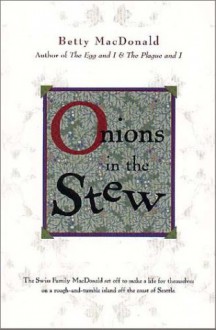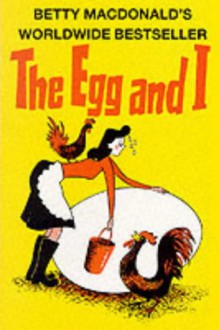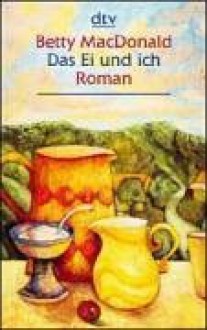
This biography of one of America’s iconic women captures Betty MacDonald from top to bottom, from her grandparents to the relatives that survived her death. Her books shined a humorous, if sometimes critical, eye on certain aspects of living in the Pacific Northwest as one the last frontier lands in the country from the 1920s-1940s. Now Paula Becker draws the curtain back and shows us some of the things that Betty herself was reluctant to put in her semi-autobiographical novels.
After having listened to Betty MacDonald’s four novels, and having read her Mrs. Piggle-Wiggle books as a kid, I felt like I knew her somewhat. This biography filled in some of the blanks and had a few surprises for me as well. Getting to know more about Betty’s ancestors and her first husband was an interesting place to start. I loved that her mom was a no-nonsense kind of person and happily traveled with her husband (who worked for a mining company – if I recall correctly). This job took the family to some of the most rugged areas of the US.
Later, when Betty starts publishing novels, Becker gives a somewhat detailed account of what each one is about. While these books aren’t described one after another all in a row (but are sprinkled in among the biography along the timeline of when they were published), I did find the descriptions a little tedious. However, I have recently finished listening to them and they are still fresh in my mind. I think that if you haven’t read the books in some time (or perhaps you haven’t read all 4 of them) then this would be a good refresher for you.
For me, the most interesting parts were in the last quarter of the book – all that stuff that happens after Betty’s fourth novel, Onions in the Stew, was published. While Betty’s second marriage was evidently much happier than her first, it wasn’t untroubled. There were money problems which surprised me. Betty’s books were very well received in their day, complete with radio and TV series along with a movie. Yet success doesn’t always prepare one to manage money well, especially if one turns that responsibility over to a spouse. Betty was in the unusual position of being the breadwinner for the family and yet also feeling socially obligated to play the merry housemaker. Becker gives us details on this without falling into gossip. I really appreciate that she stuck with known facts and extracts from MacDonald letters to paint this picture of Betty’s and Don’s marriage.
While I had read on Wikipedia about Betty’s legal troubles (several people were not happy with how they were supposedly portrayed in her books), Becker gives us many details. Plenty of those complaining received a bit of fame. Some of them really seemed to enjoy it so it was hard to say that the portrayals in Betty’s books did them any harm.
I was saddened to learn of Betty’s death and this probably sounds quite odd as I’ve known since I picked up The Egg and I so many months ago that she was deceased. However, I’ve really come to enjoy her company through these books. As Becker’s biography walks us through her last months, I really felt for Betty. She died young by today’s standards but I doubt there was much more medicine could have done then. After reading her book about her lengthy stay in a tuberculosis sanatorium (The Plague and I), I can guess that she faced her final illness with the same pointed wit.
I received a free copy of this book via The Audiobookworm.
The Narration: Paula Becker narrated her own book and since this is nonfiction, it worked pretty well. She tried her hand at doing a few voices when necessary and those performances were passable. For the bulk of the book, she does a great job of maintaining an even speed and giving slight inflections here and there, letting us know that she’s just as engaged in the book as us listeners are.

 Log in with Facebook
Log in with Facebook 









